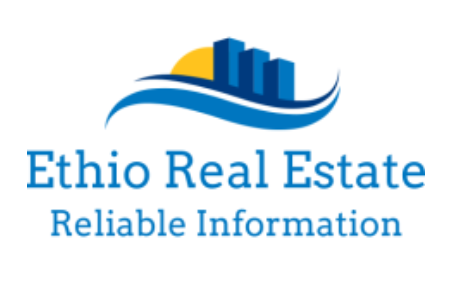
Real estate investors in Ethiopia have enjoyed tremendous gains in the last two decades. However, the party is about to come crashing down by a slew of new property related taxes enacted and expected to be enacted in 2023, according to interviews done by EthioRealEstate.com.
In May 2023, Addis Ababa city administration announced that they were increasing their “wall and roof” tax to bring it in line with the value of properties in the city. To some owners, this could be a 20 to 30 fold increase from what they are currently paying. While owners were crying foul over this unexpected increase, a new “property tax” has been announced and is expected to be law in the last quarter of 2023. Experts and analysts familiar with the draft law are estimating that owners should expect to pay between 0.1% and 0.5% of the value of their property annually.
EthioRealEstate.com performed interviews and an informal poll to find out how these taxes are going to affect real estate investors in Addis Ababa. The majority of investors think it will affect them negatively and might force them to sell or increase their rent significantly. Shewitt Asfaw (not her real name) is one of those investors. She owns a 30M Birr house in a 150 sqm compound in the Megenagna area of Addis Ababa. She is currently renting it for 65,000 Birr per month. She pays 170,000 Birr per year in rental income tax. She also pays 30,000 Birr per year to the government for lease of the land where the house sits on. After paying rental income tax, lease, repair and maintenance, she nets about 45,000 Birr per month. If we include the new taxes, her monthly income could decline to just under 32,000 Birr per month. Wall and Roof tax would amount to 45,000 Birr per year (231 sqm x 361 x 12 x 0.045). Property tax would be 150,000 Birr per year (assuming the high end of the range which is 0.5% of the value of the property). If these taxes are not revised downward, Shewitt plans to sell her house.
Fekade Demissie (not his real name) is bewildered by such aggressive tax laws. Even in developed countries where cities provide sufficient services, the rates are not this high. Fekade owns a building in the Arada subcity with 12 apartment units. Since the municipal water system is available only 2-3 times per week, he spends more than 30,000 Birr per month on truck delivered water. He also spends 45,000 Birr per month for generator fuel. This is in addition to substantial amount of money he contributes yearly for the repair of the road leading to his building. If these infrastructure problems were addressed by the city, the burden of the taxes would not have been as great. As to what he plans with his investment, he is likely to keep his building, but doesn’t plan further purchases or investment in the sector.
For most investors we spoke, this is a time of uncertainty and don’t yet have a clear plan. At the same time, they hold hope that the government will change course by either reversing or at least introduce them gradually over several years, giving both owners and renters a chance to adjust without undue hardship.

Well written article.
The government has called a townhall feedback meeting for Monday October 9 to “discuss” the new property tax.
I believe these taxes are unfair given ALL properties are owned by the government.
You pay a 99 year lease to get a land, then you pay a “roof and wall” tax, and now a third tax called “property tax”. I think this will not work and the government has no any other options but to scrap it.
Let us see what the report from the feedback meeting.
Thanks for this timely article. People in the country are victims of war, inflation, and corruption. This is NOT the right time to introduce a new unfair tax. The government must cancel this tax or people will refuse to pay these new taxes and revolt in the coming months.
@Almaz,
I agree with you. Ethiopian people are fed up with the system, and I am afraid this could lead us into lawlessness and anarchy. I pray this wouldn’t be the case!
The goal of all these taxes are to target non-Oromo Ethiopians, who own substantial properties. The government has a hidden agenda to drive the property owners out of Addis and/or the country by selling their properties. The government authorities live in beautiful villas for free, and they don’t care for property owners.
As a member of the Diaspora in the UK, I am having a second thought about buying properties in Ethiopia until after the effect of these taxes are clearly known. @AbiyAhmed, please cancel these crazy taxes, and allow the real estate sector to continue to grow.
To build a decent 100 unit apartment in a not-so-bad area of Addis Ababa:
1) Land cost $200 Million Birr
2) Construction Cost $650 Million
3) Bribe to get permit, electricity, water, title deeds, etc. $50 Million
4) Sales and Marketing cost $50 Million
5) Miscellaneous $50 Million
You have already spent $1 Billion Birr on these five items alone.
If the government decides to charge property taxes on homes under construction, developers will pay about $20 million ($50,000 x 4 years x 100 units) . This $20M will be charged back to the buyer. Now you see where I am going with this.
Generally I don’t read post on blogs, however I wish to say that this write-up very compelled me to check
out and do so! Your writing taste has been surprised me. Thank you, very great post.